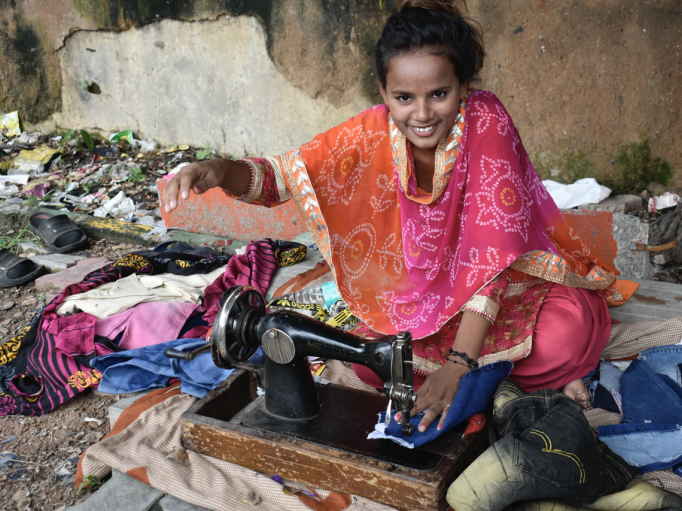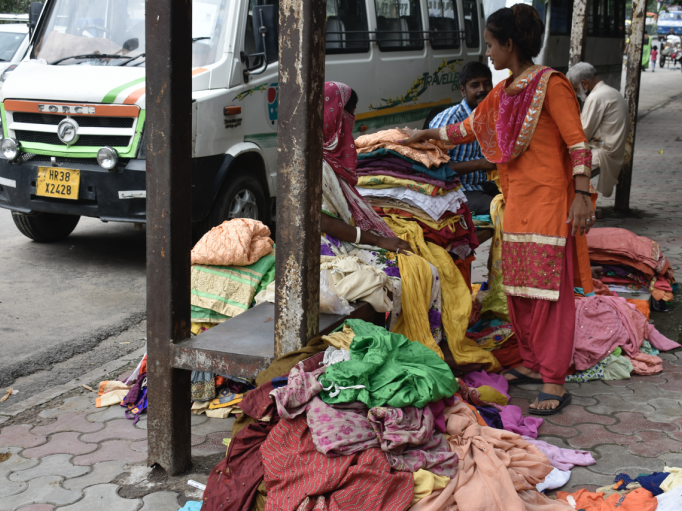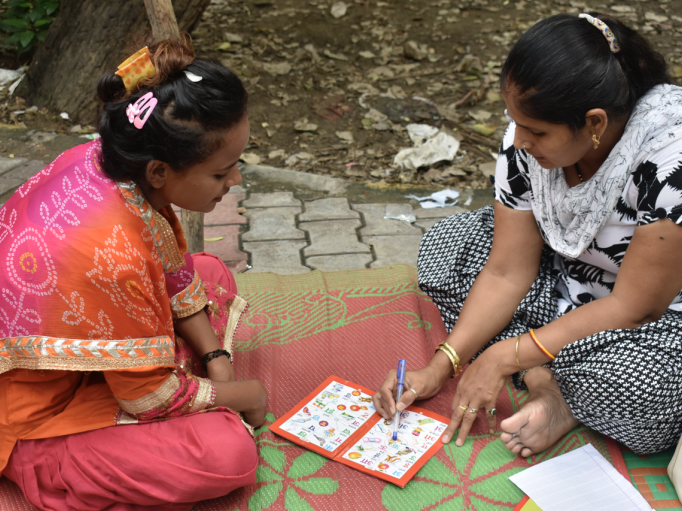“The pandemic caused clouds of gloominess to hover above us.” Kanci

Clothes for utensils
Growing up in the crowded slums of West Delhi, Kanci has spent her 14 years of life working with her parents at a local market where they sell old clothes in return for steel cooking utensils. Despite wanting to, she has never gone to school and often feels the burden of having to work.
In 2019 however, Toybox’s partner, CHETNA, met Kanci for the first time. As they spoke, the street educator told Kanci about the project, explaining how it was a place for children like her to go and learn life skills through sport. Kanci was enthralled and started attending the project regularly.
Through the project, Kanci received a sewing machine that allowed her to develop her tailoring skills. Her sister had been sewing for a while before and she would often sell the clothes she’d altered to earn more money. This inspired Kanci to learn how to do it herself. Now, she knows how to make blouses, suits and children’s clothes, which she sells for her own income.
“Knowing how to sew makes me feel empowered because I can earn money and make clothes for myself so I’m not dependent on anyone else now.” Kanci

A pandemic and periods
In 2020 however, the coronavirus pandemic changed life in India, like it did across the world. Lockdowns affected Kanci’s family in the same way as many others – they struggled to pull together enough money for one meal a day, let alone hygiene products for Kanci when she was on her period. Sanitary pads were a distant dream so Kanci continued to use old clothes instead, causing irritation and skin problems. "During my period in the pandemic, I had to use old clothes as we didn’t have enough money to buy even food," she shares.
Like many other girls in India when they’re on their periods, she wasn’t allowed to touch anything edible and had to stay away from any men or boys in her family. She was temporarily excluded from the family and couldn’t even attend any celebrations while she was bleeding. Lack of water facilities and toilets also makes it difficult for women living in slum settlements across the country to stay clean and comfortable during their periods – something Kanci finds hard to be ok with.
During the pandemic, Kanci was able to receive support from CHETNA, who gave her dry ration packs, stationery kids and sanitary pads, as well as emergency relief support – Kanci was particularly delighted to receive the sanitary pads.
Since starting to attend the project, Kanci has realised that menstruation shouldn’t be a taboo topic. On learning more about it, she has become increasingly curious about women’s bodies and is determined to understand why periods are not talked about in her community. She’s also spreading her knowledge about the advantages of using pads over old clothes and has even convinced her cousin to use sanitary pads too.
“Using a sanitary pad is a luxury for me. When I received and used pads, I felt comfortable and at ease. Receiving this support from CHETNA every now and then gives me immense happiness and mental satisfaction.” Kanci
